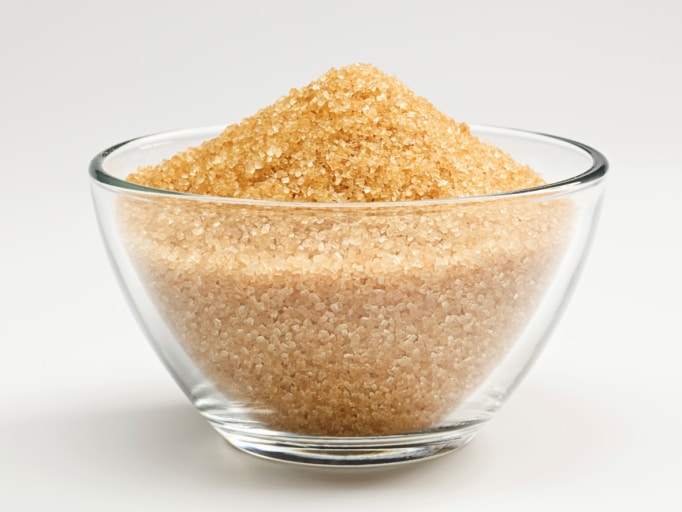A Comprehensive Overview of the Wellness and Economic Implications of Walking Cane Sugar Handling on Neighborhood Communities
Cane sugar processing plays a pivotal role in shaping the economic landscape of local areas, providing employment possibilities and boosting secondary markets. The wellness ramifications connected with high sugar usage can not be forgotten, as they add to climbing prices of obesity and diabetes.
Financial Advantages of Walking Stick Sugar Handling
Walking cane sugar processing offers substantial economic advantages that expand past the prompt agricultural field. The growing and handling of sugarcane produce numerous task opportunities, from farming to production and distribution. This work generation not only sustains local economic situations however also promotes neighborhood advancement by giving secure revenue sources for households.
In addition, the sugar market boosts ancillary organizations, including transport, tools supply, and packaging solutions (Cane Sugar Processing). As these sectors grow, they add to a more robust financial structure, improving total community resilience. The export capacity of refined walking cane sugar further intensifies economic advantages, positioning areas as competitive gamers in international markets
Financial investment in modern processing centers can bring about increased productivity and performance, consequently lowering waste and maximizing resource usage. This shift not just benefits the neighborhood economic situation yet additionally supports sustainability initiatives by lessening environmental impacts.
Furthermore, the income created from walking cane sugar handling can be reinvested in neighborhood framework, education and learning, and medical care, advertising holistic area development. Overall, the economic advantages of walking cane sugar handling are complex, giving a structure for sustaining success in farming areas.
Wellness Threats Related To Sugar Consumption
Too much sugar usage positions substantial health and wellness risks that require serious interest. High intake of included sugars, particularly from refined foods and beverages, has been connected to many health difficulties.
Additionally, high sugar consumption is linked with cardiovascular condition. Raised blood sugar degrees can bring about insulin resistance, a forerunner to different heart-related issues. In addition, sugar can have destructive impacts on dental wellness, resulting in cavities and periodontal disease, as bacteria in the mouth grow on sugar, producing acids that erode tooth enamel.
Moreover, arising research study suggests a prospective web link in between high sugar intake and psychological health and wellness conditions, such as anxiety and anxiety. As areas face these health risks, it ends up being important to promote awareness and motivate healthier dietary selections. Addressing sugar usage is important not only for private health but additionally for the overall well-being of neighborhood neighborhoods, stressing the demand for extensive public health approaches.
Ecological Impacts of Sugar Production
Often forgotten in conversations about sugar's implications is the considerable environmental effect of sugar manufacturing. The farming of sugarcane frequently demands comprehensive land usage, leading to deforestation, loss of biodiversity, and disruption of local ecological communities. The conversion of woodlands and marshes into sugar haciendas can lead to habitat damage, threatening various varieties and changing environmental equilibrium.
Furthermore, sugar production is resource-intensive, consuming substantial amounts of water for watering. This can result in deficiency of local water resources, adversely affecting both farming techniques and area access to clean water. Additionally, the use of chemical plant foods and chemicals in sugarcane farming can add to dirt degradation and water contamination, as overflow from these chemicals goes into neighboring rivers and lakes, influencing aquatic life and human health.
The ecological footprint reaches the handling stage, where power consumption and waste generation further intensify ecological concerns. Air air pollution from melting sugarcane areas, in addition to greenhouse gas discharges, contribute to environment modification. Thus, the ecological implications of sugar manufacturing warrant serious consideration, prompting stakeholders to adopt even more lasting practices to mitigate these damaging impacts on neighborhood environments and neighborhoods.
Task Creation and Neighborhood Growth
The environmental difficulties presented by sugar production are often counterbalanced by its capacity for financial benefits, specifically in job production and neighborhood growth. The cane sugar industry acts as a considerable source of work in many backwoods, giving tasks across different skill levels, from farming labor to processing and distribution duties. This employment not just sustains specific households but additionally adds to the total financial vitality of neighborhood communities.
Additionally, the establishment of sugar handling centers promotes supplementary companies, such as transportation services, equipment supply, and upkeep carriers. As these businesses prosper, they create extra tasks and boost neighborhood economic situations. The profits created from the sugar sector also brings about raised tax obligation incomes, which can be reinvested right into social work such as education, infrastructure, and healthcare development.
Furthermore, the sugar industry usually takes part in community development efforts, such as sustaining neighborhood schools and wellness programs, therefore improving the high quality of life for look at these guys citizens. By promoting strong area connections and advertising economic growth, the walking cane sugar processing field plays a crucial role in uplifting local populaces, making it an essential element of sustainable growth strategies in sugar-producing areas.
Harmonizing Wellness and Economic Development
In browsing the complexities of walking stick sugar processing, a vital obstacle exists in balancing health factors to consider with economic development. The sugar industry considerably contributes to neighborhood economic climates by creating jobs, boosting related sectors, and increasing tax obligation profits. Nevertheless, the wellness effects related to excessive sugar consumption can lead to persistent illness such as obesity, diabetes mellitus, and cardiovascular concerns, which can burden public wellness systems and reduce labor force efficiency.

Furthermore, regulative frameworks can play an essential role in leading sector methods in the direction of even more lasting and health-conscious strategies. By cultivating cooperation in between government bodies, health organizations, and the sugar industry, communities can browse the duality of health and economic growth, guaranteeing that the benefits of walking stick sugar handling are equitably shared while focusing on public wellness.
Conclusion
To conclude, the processing of walking stick sugar provides both considerable financial advantages and noteworthy health dangers for local neighborhoods. While it cultivates job production and boosts regional development, the affiliated health problems, particularly concerning excessive weight and diabetes, necessitate a cautious balancing act. By promoting liable usage and investing in community education and learning and lasting practices, it is possible to make best use of economic advantages while reducing unfavorable health and wellness results, consequently guaranteeing a healthier future for local populations.
In addition, sugar can have destructive results on dental health, resulting in dental caries and gum illness, as bacteria in the mouth thrive on sugar, creating acids that deteriorate tooth enamel.
Dealing with sugar intake is important not just for specific health but likewise for the total well-being of local areas, highlighting the need for extensive public health and wellness approaches.
Regularly overlooked in discussions regarding sugar's effects is the significant environmental influence of sugar manufacturing. The health and wellness ramifications associated with too much sugar usage can lead to chronic diseases such as obesity, diabetic issues, and cardiovascular concerns, which can problem public health systems and diminish workforce performance.
